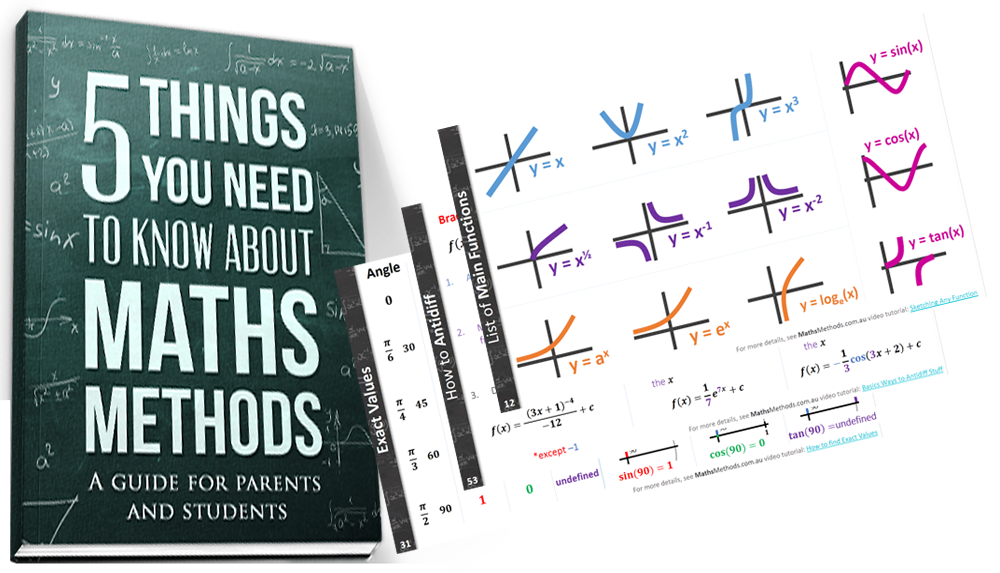You are upset that you got such a low mark
You've just received a mark back and it's terrible!
Usually you get 60%, 70% or even 80%, but now somehow you didn't even pass! What's going on??!!
Don't worry, it's not as bad you think.
To understand why, there are a few things you need to know.
1. The test is designed to lower your mark
The scoring system has changed and a low mark does not necessarily mean you performed badly.
40% could be equivalent to 80%.
The tests in Year 11 and 12 are often purposely harder to differentiate the geniuses from the rest of us.
The difficulty of these tests varies from school to school, but as a general rule, it's not unusual for a student scoring 70% or 80% in Year 10, to start getting scores around 50-60% or even lower.
This is unfortunate, because it tends to destroy your confidence but it shouldn't. The mark is the same, but the number has changed.
You may actually know the content quite well, but in order to be able to rank all the students, the questions go beyond just testing your knowledge.
This means there are potentially questions that the teachers don't expect students to be able to answer. Why? They are reserved for the geniuses.
The best way to figure out how well you did is to check you marks with students who usually get similar marks to you. If their test score was similar, even if it is 30%, you really didn't do as bad as you think.
So don't worry so much about your mark, even if you failed.
See how you did in comparison to other students. The top score may have been 60%, and this could be equivalent to getting 100%.
In fact, students who score around 50% on the final Year 12 exams, end up in the top 26% of the state. It seems insane, I know, but it's how the system works.
If you scored much lower than students who usually get the same score as you, there's something else you need to know.
2. The questions are completely different
You've spent the majority of your schooling doing textbook questions and now they've changed the rules of the game.
It's called Extended Response Questions and you, like every other student, struggle with them.
In the textbook and in previous years' tests, you are given a question that asks you to apply a formula, or rule and you'll get a correct answer. They tell you exactly what to do, and if know your stuff, it's very easy to answer the question.
These Extended Response Questions give you are problem and you have to figure out what to do. This is a brand-new skill!
Since you are unfamiliar with this, you may have scored much lower on your test than you usually do. But not all is lost!
All you have to do, is train yourself on this new skill.
From now on...
Every time you study Methods, spend some of the time doing exam-questions under timed conditions.
Literally. Every. Time. You. Study.
To begin with you might not be able to get any marks, and this will destroy your confidence.
This is normal, accept this feeling and understand everyone feels this way.
Now look at the solutions and figure out where you went wrong. Repeat the same questions under timed conditions, over and over, until you feel you got a score you were happy with. Then work on new exam questions and do the same thing. By repeating the same questions, you will build your confidence and eventually you'll find that you have less trouble with future questions.
If you feel you don't have time to do exam questions, then skip any simple textbook questions that you feel you can easily answer. This should free up some time.
Of course, if you really struggle with the basic textbook questions in general then work on these until you feel confident with them but don't spend time on them if you are doing relatively well. Textbook question can make you feel more confident, but doing exam-questions will build true confidence, though it may not seem that way to begin with.
See "Study Techniques to Reduce Stress" to learn more.
3. To sum this all up...
You score has gone down because the tests are simply harder. A low score does not necessarily mean you performed badly. The scoring system has changed.
Your marks may even be worse than other students who you usually score the same as, this just means that you need to work on practising this new skill of doing extended response questions.
Do some exam-style questions under timed conditions every time you study, and repeat the same questions over and over until you feel happy with your answers.
The goal is to do as many exam-style question as possible during your study time and if you do this consistently, you will see a massive improvement in your marks. I tell my students to aim to do 50% or more of their study time doing timed exam questions.
To begin with, it will make you feel worse, but keep at it, eventually your confidence will build.
And remember, just because your mark is lower, it doesn't necessarily mean you are performing worse than last year 🙂
For more free resources and other helpful advice, enter your email address below:

